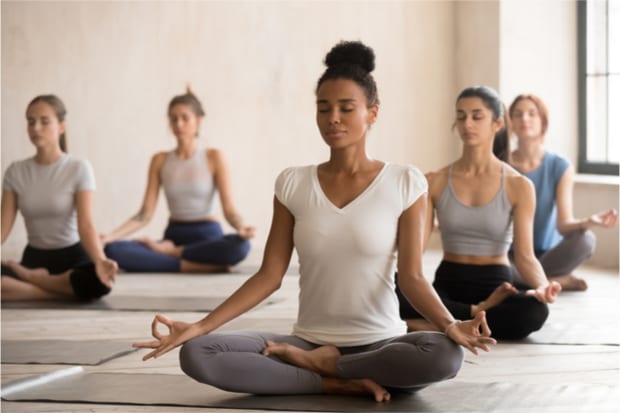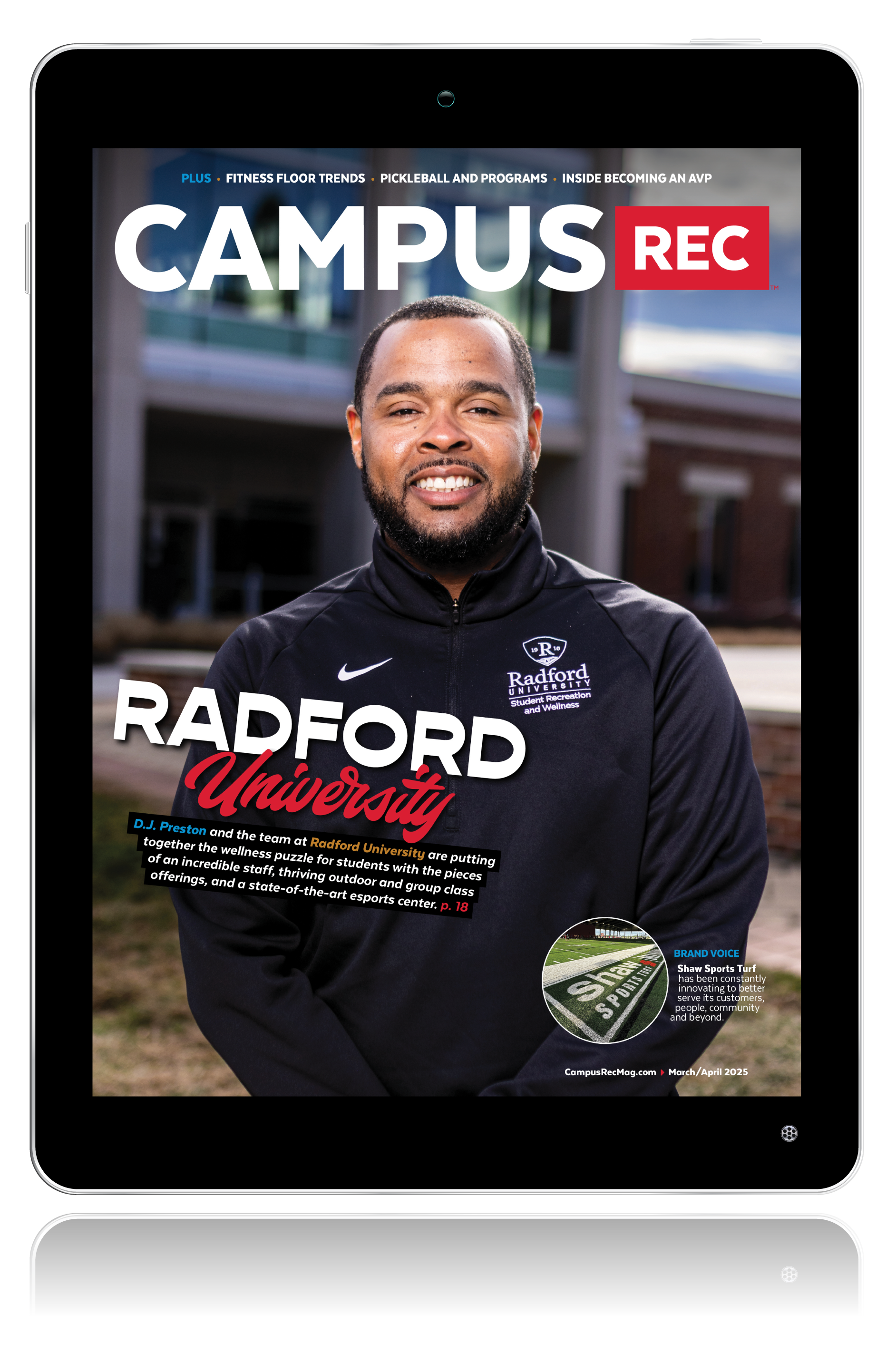
We all envision something different when we hear the word ‘wellness’ — as evidenced by the array of image hits you’ll get if you take the good ol’ Google for a spin.
For some it means working out and eating healthy. For others it means doing yoga and cartwheels on a gorgeous beach in Bali. And neither of those are wrong.
Wellness means different things for different people. However, when you work in collegiate recreation or university wellness, your responsibility is to dive down into the wellness spring and arrive back at the surface with a framework that will ground the programmatic efforts and resources offered by your department and university.
At NC State, we believe wellness is holistic in nature, integral to student success and has to be a shared responsibility if we were going to positively impact the lived experiences of our students.
Wellness is Holistic
NC State defines wellness as the connected and interactive combination of six elements that foster a balanced, holistic life. Inspired by and adapted from the Gallup-Purdue “Wellbeing” text, these six elements are: purpose, financial, physical, emotional, social and community. Our belief in the interplay and interdependence of these elements came to light in new and exciting ways with our name change, from university recreation to wellness and recreation.
Physical activity is one aspect of well-being, and for some it may be the one to which they are most easily able to connect. However, for others it may be the element furthest from their grasp. We work to conceptualize and operationalize wellness as a holistic concept, expanding the resources offered by our department to encompass and highlight multiple elements of our wellness model. As a result, we are able to meet our community members wherever they may be in their wellness journey. We then use that meeting point as an opportunity to come alongside them on their respective journeys, identifying further opportunities to promote their wellness and exposing them to more of what our department has to offer.
Wellness is Integral to Student Success
Nationally, institutions grapple with identifying strategies to boost student success outcomes. Like institutions of varying sizes across the country, our students identified stress, anxiety, sleep and depression as some of the top impediments to their academic success. While students themselves may not readily draw the connection between sleep habits and their ability to focus in class and study effectively, as helping professionals in wellness it is our role to help increase their awareness of the connection between wellness and academic outcomes.
At NC State, we offer awareness campaigns and programs, as well as individualized interventions designed to help students reflect on the impact of their current habits and well-life choices on their academic performance. Whether facilitating a one-on-one wellness coaching session about the importance of time management in reducing anxiety symptoms around completing coursework, or providing awareness through passive programs regarding the benefits of engaging in at least 30 minutes of physical activity per day as a means of managing stress, we help students draw the connection between improved wellness outcomes and thriving academically and personally at NC State and beyond.
Wellness is a Shared Responsibility
No one has the corner-market on wellness — especially not on a university campus. The collegiate environment is replete with services designed to help a student be well and thrive. And for those of us who work at large institutions, I’d argue this model is necessary if we are going to stand a chance of reaching even a percentage of the number of students on campus. However, our challenge then becomes establishing a unified campus framework and voice around wellness so students don’t experience interactions and touchpoints as disjointed.
Our partners in counseling, student health, career services, academic advising and the many others are our greatest allies in our quest to improve wellness outcomes and facilitate student success at NC State.
One partnership that has been particularly impactful for us has been with human resources. We believe that cultivating a culture of wellness for the campus community begins with faculty and staff members. We offer several opportunities for faculty and staff to improve their own personal wellness outcomes, with the hope of them modeling those behaviors for their students both within and outside of the classroom. These opportunities include our employee wellness champion and the “Well Wolfpack Certified Organization” initiatives, our monthly Wolfpack Wellness Power Lunch Series and our custom wellness workshop experiences for departments.
Viewing wellness as holistic in nature, integral to student success and as a responsibility shared with partners across campus allows your department to tap into the fabric of your institution in incredibly powerful ways. It also helps to draw in new user bases to the facility by breaking down effective barriers to access and increasing the capacity for campus recreation facilities to serve as a source of personal support and academic success for an even wider array of community members.










